365 days ago we were safe in our homes. From late March to mid-May, our community experienced a stay-at-home order and, well, stayed at home. We watched Tiger King, baked banana bread and went on family walks. This temporary hibernation protected us in the best way it could, keeping ourselves and vulnerable community members distanced. However, this measure wasnŌĆÖt enough to stop the spread of COVID-19, and neither was the lifting of the stay-at-home order later that month. As we’ve returned to the new normal, complete with masks, quarantines and more, weŌĆÖre being presented with a glimmer of hope: vaccination.
Anyone over the age of 16 is now eligible to receive a COVID-19 vaccine; nearly everyone who has the privilege should, to help protect those who donŌĆÖt. Despite widespread availability, there is palpable resistance to vaccination, with 13% of adults reporting that they will ŌĆ£definitely notŌĆØ receive a vaccine. In our own community and abroad, many feel vaccination is not a safe or worthwhile pursuit. They are wrong. For the preservation of public health and eventual creation of herd immunity we need to focus on mass vaccination. All eligible people have a responsibility to get vaccinated.┬Ā
If youŌĆÖre reluctant to get a vaccine, consider this as an action to protect your community. Press pause on your worries for a moment, and consider how it will impact the immunocompromised, the elderly and community members who stand to gain the most from herd vaccination. University of Chicago ethicist Laurie Zoloth explains this idea: ŌĆ£It begins with the notion that you should care about others, even strangers. And the idea that you should love your neighbor as profoundly as you love yourself ŌĆö even placing their concerns and needs ahead of your own ŌĆö is the great moral lesson and the core of justice in many religions.ŌĆØ The social responsibility we have to our community means we must get vaccinated. We should care about others and take action.
The COVID-19 vaccinations approved under Emergency Use Authorization (EUA) by the U.S. Food and Drug Administration (FDA) are just as safe as vaccines approved under a regular timeline. This infographic shows that EUA simply allows for vaccines to be mass produced while testing occurs. EUA does not allow for cutting corners in safety. It simply expedites administrative processes, like express shipping a package.
Vaccinations against diseases like polio, chicken pox, measles and rubella are already mandatory for public school students entering kindergarten in all 50 states. This has been effective in curbing and decreasing transmission over the past few decades, both within school buildings and their broader communities. Past results and empirical evidence are testaments to the efficacy of vaccines. Despite the COVID-19 vaccinesŌĆÖ expedited approval, they are still just as safe as the other, already mandated vaccines.
No vaccine is 100% effective. Even fully vaccinated people have a slight risk of developing COVID-19, but studies have shown that mass vaccination directly lowers transmission rate in communities, making the overall rate of infection for everyone much lower. By getting yourself vaccinated, you help prevent unnecessary hospitalizations and even deaths.
Vaccination is paramount to protecting our community and moving forward, and the education system plays a vital role.
According to Dr. Kelly Moore, associate director for immunization education at the Immunization Action Coalition, when lawmakers and immunization experts determine which vaccines to make mandatory for children attending public school, their biggest question is ŌĆ£Do we think this vaccine will make schools a safer, healthier learning environment for our children?ŌĆØ┬Ā
The return to in-person school has sparked many questions about safety and COVID-19 procedures. Many students and staff members have felt unsafe returning to a learning environment that was at-risk for COVID-19 transmissions. To minimize this risk and support a largely in-person learning experience next year, we must get vaccinated.┬Ā
Even though the risk of contracting the COVID-19 infection is low in children and young adults, getting students vaccinated will still have a major effect on the quality of in-person learning. Students will no longer have to worry about spreading the virus to others in their communities if they and their families are also vaccinated, which will result in an increase in in-person enrollment next school year. This means the risk of COVID-19 infection for the overall community is much lower and we will see better student-student and student-teacher interactions than those present. Getting your vaccination will allow for higher-quality in-person learning.
While public and private colleges alike have begun to mandate COVID-19 vaccinations for students returning in-person this fall, confident that probable legal battles will swing in their favor, public schools have less leeway to take that chance. The Parkway School District has begun to encourage vaccinations for eligible students through their Apr. 26 vaccine drive, but a full-dose should ideally be mandated, and at the very least heavily encouraged, to have any chance at a higher quality in-person experience next year. A school year with fewer worries and more of a chance to focus on the content at hand will only be possible with a vaccinated student body.┬Ā
Everyday, we take actions to support others and we make choices that do not harm others. Getting vaccinated is an extension of this choice. Make every effort and take every chance to get vaccinated. Do your part and adhere to your social responsibility so we can move forward as a community. Below we have some resources available so that you can get your vaccine. Please, do your part.
Resources to get your vaccine:┬Ā
St. Louis County Vaccine Appointments
Walk-in or appointments available at St. Luke’s┬Ā
Walk-in site available at the Dome at AmericaŌĆÖs Center
Senior Sri Jaladi’s Vaccine Notification Registration Website┬Ā
If you are the parent of a Parkway student over the age of 16, and did not receive an email regarding Parkway vaccination opportunities for your student, or have any questions, contact Katherine Park (kpark@parkwayschools.net).

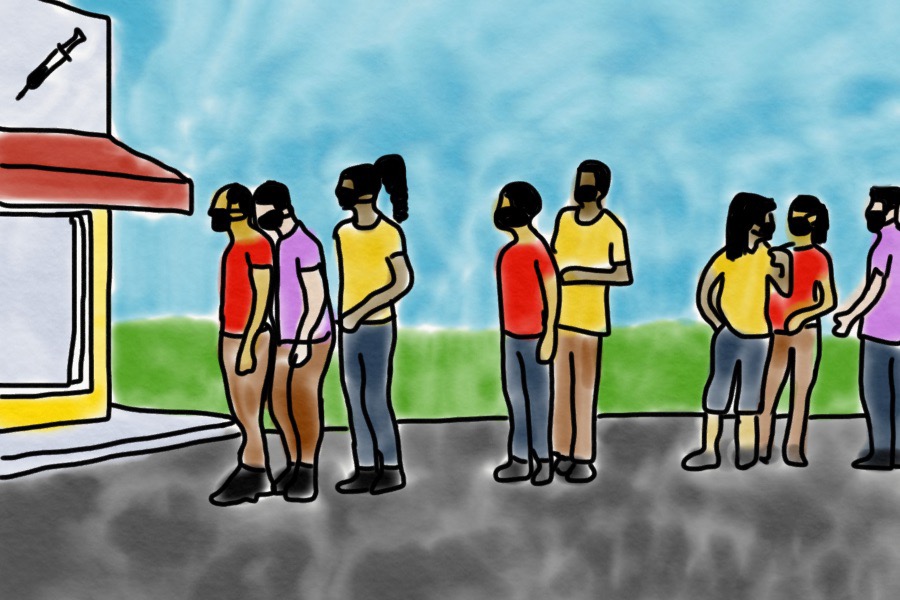
![Dressed up as the varsity girlsŌĆÖ tennis coach Katelyn Arenos, senior Kate Johnson and junior Mireya David hand out candy at West HighŌĆÖs annual trunk or treat event. This year, the trunk or treat was moved inside as a result of adverse weather. ŌĆ£As a senior, I care less about Halloween now. Teachers will bring their kids and families [to WestŌĆÖs Trunk or Treat], but there were fewer [this year] because they just thought it was canceled [due to the] rain. [With] Halloween, I think you care less the older you get,ŌĆØ Johnson said.](https://pwestpathfinder.com/wp-content/uploads/2025/10/DSC00892-1-1200x800.jpg)
![Leaning on the podium, superintendent Melissa Schneider speaks to Parkway journalism students during a press conference. Schneider joined Parkway in July after working in the Thompson School District in Colorado. ŌĆ£My plan [to bond with students] is to get things on my calendar as much as possible. For example, being in [classes] is very special to me. I am trying to be opportunistic [meeting] kids [and] being in [the school] buildings. I have all the sports schedules and the fine arts schedules on my calendar, so that when I'm available, I can get to them,ŌĆØ Schneider said.](https://pwestpathfinder.com/wp-content/uploads/2025/09/IMG_5425-1200x943.jpeg)

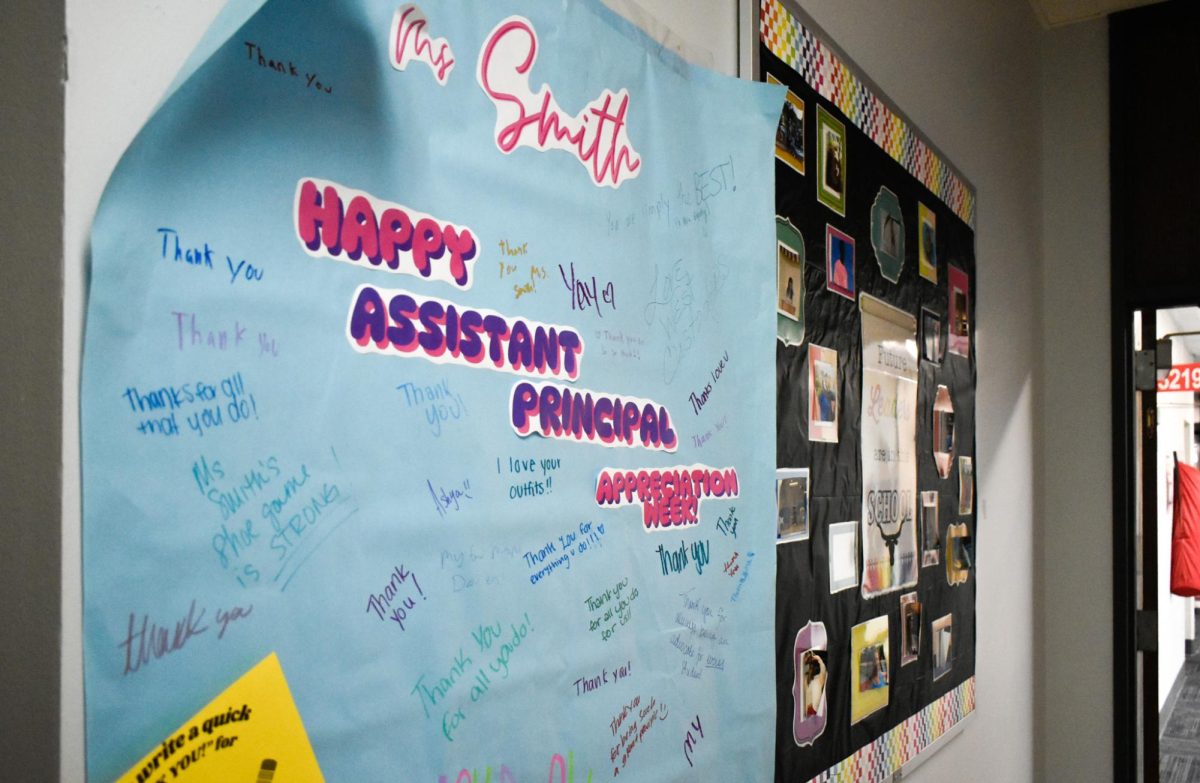
![Red, white and blue, the American flag holds the values of our democracy. The fight that we once endured has returned, as student journalists and senior correspondents across the country are losing their voices due to government control. ŌĆ£[Are] the White House and [the] government limiting free speech [and] freedom of the press? Yes [they are],ŌĆØ chief communications officer of the Parkway School District and former journalist Elisa Tomich said.](https://pwestpathfinder.com/wp-content/uploads/2025/03/Untitled-design-14.jpg)
![A board in the Parkway West counseling department displays pennants of selective universities. With a wide range of students interested in attending, itŌĆÖs important that these schools have clear priorities when deciding who to admit. ŌĆ£[Washington University] had the major that I wanted, psychology, philosophy, neuroscience. That's a holistic study of the brain, and [WashU is] the only college in the world that offers that. That's the main reason I wanted to go; I got into that program,ŌĆØ senior Dima Layth said.](https://pwestpathfinder.com/wp-content/uploads/2025/02/Flag-1.png)
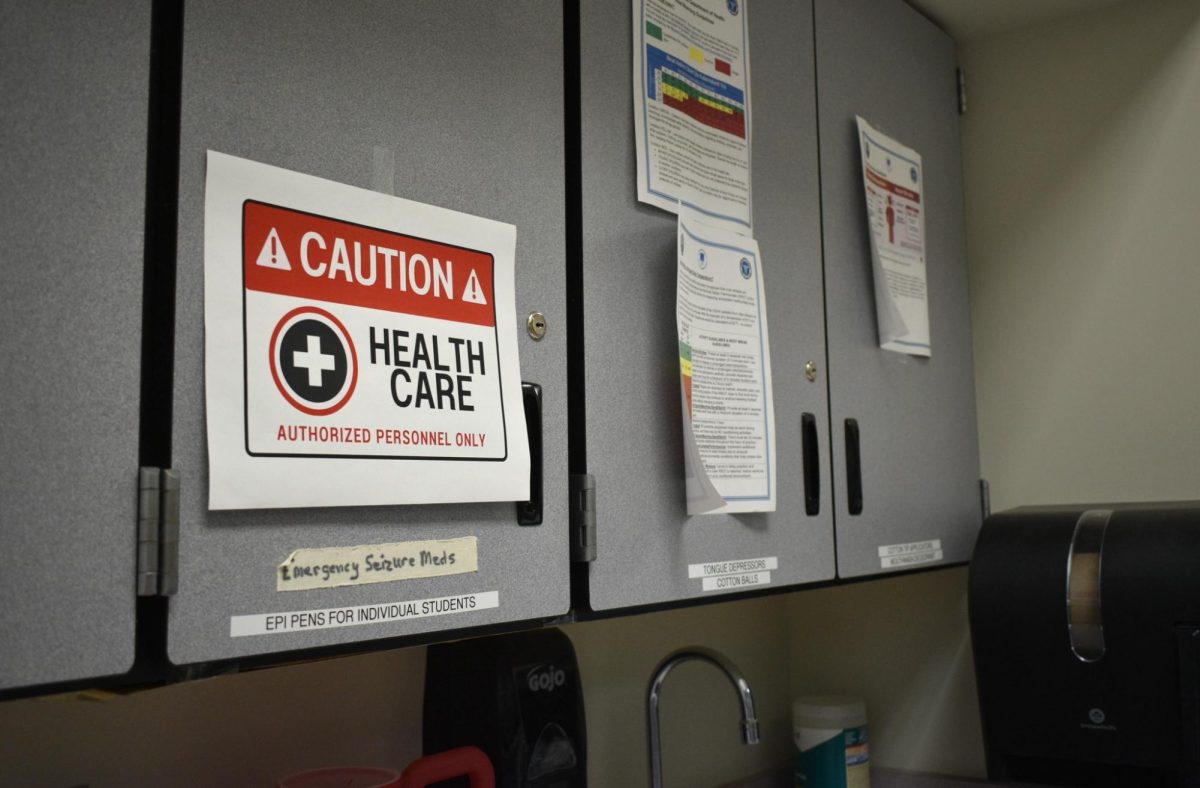
![Within the U.S., the busiest shopping period of the year is Cyber Week, the time from Thanksgiving through Black Friday and Cyber Monday. This year, shoppers spent $13.3 billion on Cyber Monday, which is a 7.3% year-over-year increase from 2023. ŌĆ£When I was younger, I would always be out with my mom getting Christmas gifts or just shopping in general. Now, as she has gotten older, I've noticed [that almost] every day, I'll open the front door and there's three packages that my mom has ordered. Part of that is she just doesn't always have the time to go to a store for 30 minutes to an hour, but the other part is when she gets bored, she has easy access to [shopping],ŌĆØ junior Grace Garetson said.](https://pwestpathfinder.com/wp-content/uploads/2024/12/DSC_0249.JPG-1200x801.jpg)
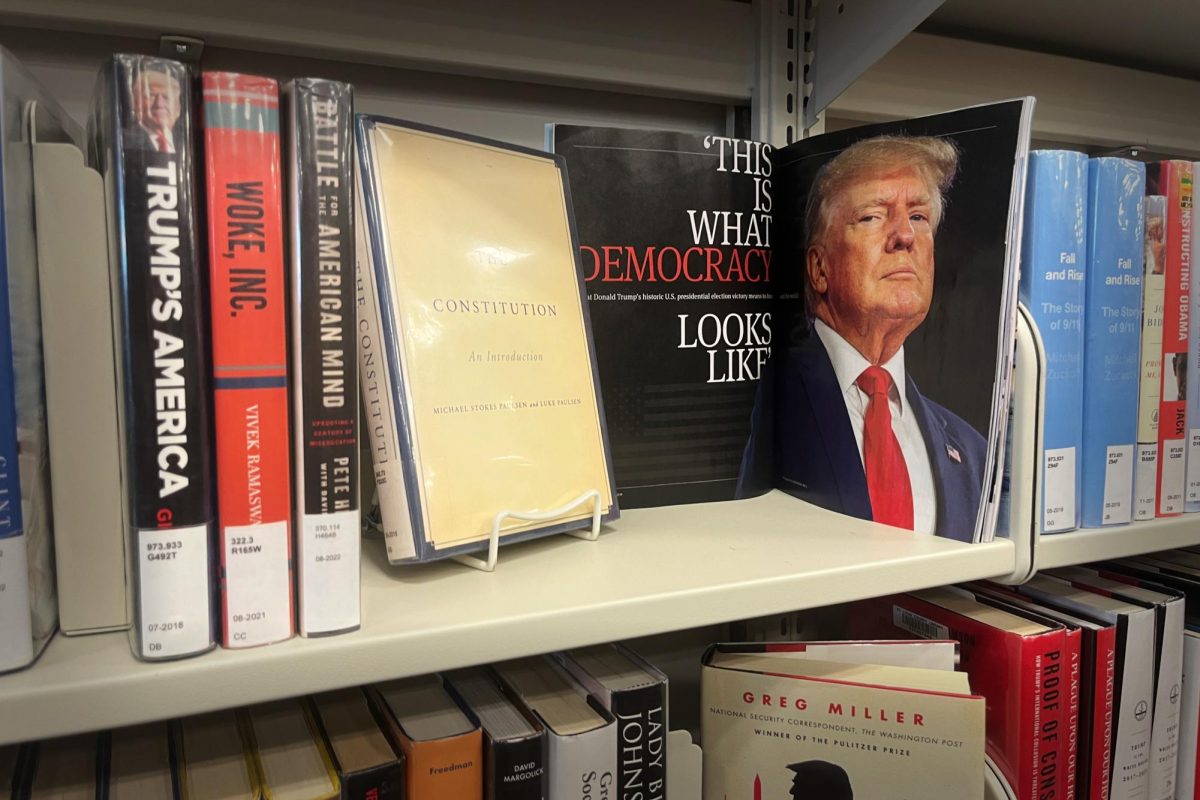
![Senior Sally Peters stands in the history hallway, contemplating her choices in the 2024 United States and Missouri elections on Nov. 5. As a member of Diplomacy Club, Peters has discussed key candidates and issues in contemporary American politics. ŌĆ£[As students], we're starting to become adults. We're realizing how much the policies that are enforced and the laws that make it through the House and Senate are starting to affect us. [Opportunities such as] AP [U.S.Government] and Diplomacy Club [make elections feel] a lot more real,ŌĆØ Diplomacy Club vice president and senior Nidhisha Pejathaya said.](https://pwestpathfinder.com/wp-content/uploads/2024/10/Flag-1-1.png)
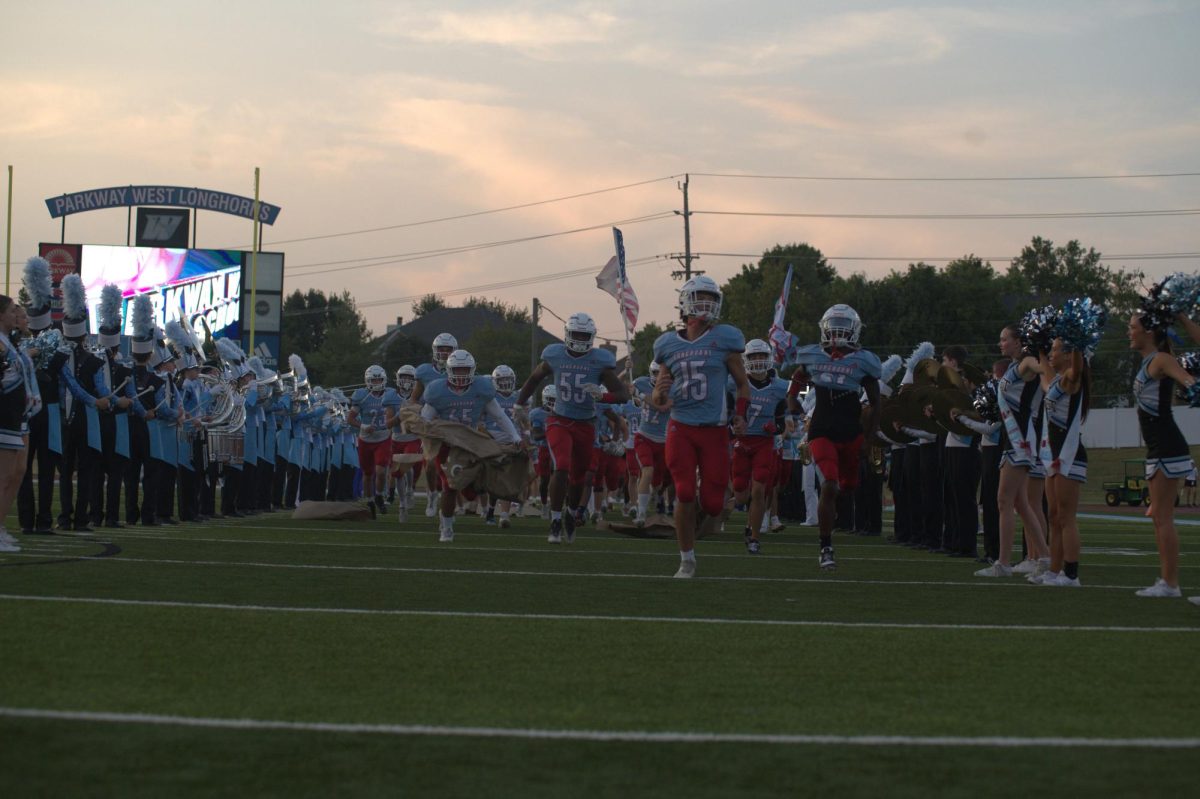
![Sophomore Shree Sikkal Kumar serves the ball across the court in a match against Lindbergh. Sikkal Kumar has been a varsity member of the varsity girlsŌĆÖ tennis team for two years, helping her earn the number two rank in Class 2 District 2.ŌĆ£When matches are close, itŌĆÖs easy to get nervous, but I [ground] myself by[staying] confident and ready to play,ŌĆØ Sikkal Kumar said.](https://pwestpathfinder.com/wp-content/uploads/2025/11/DSC2801-1200x798.jpg)
![Focused on providing exceptional service, sophomore Darsh Mahapatra carefully cleans the door of a customerŌĆÖs car. Mahapatra has always believed his customers deserve nothing less than the best. ŌĆ£[If] theyŌĆÖre trusting us with their car and our service, then I am convinced that they deserve our 100 percent effort and beyond,ŌĆØ Mahapatra said.](https://pwestpathfinder.com/wp-content/uploads/2025/10/DSC_0018-1200x800.jpg)
![Sophomore Aleix Pi de Cabanyes Navarro (left) finishes up a soccer game while junior Ava Muench (right) warms up for cross country practice. The two came to Parkway West High School as exchange students for the 2025-2026 school year. ŌĆ£The goal for the [exchange] program is to provide opportunities for both Parkway students and our international exchange students to learn about other cultures, build connections and become confident, capable, curious and caring ŌĆö ParkwayŌĆÖs Four CŌĆÖs ŌĆö in the process,ŌĆØ Exchange Program Lead Lauren Farrelly said.](https://pwestpathfinder.com/wp-content/uploads/2025/10/Feature-Photo-1200x800.png)
![Gazing across the stage, sophomore Alexis Monteleone performs in the school theater. The Monteleone familyŌĆÖs band ŌĆ£Monte and the MachineŌĆØ has been releasing music since 2012, but Alexis started her own solo career in 2024 with the release of her first single, Crying Skies. ŌĆ£My whole family is very musical, [and I especially] love writing [songs with them],ŌĆØ Monteleone said.](https://pwestpathfinder.com/wp-content/uploads/2025/09/DSC7463-1200x798.jpg)

![Leaping through the air, senior Tyler Watts celebrates his first goal of the season, which put the Longhorns up 1-0 against the Lafayette Lancers. Watts decided to play soccer for West for his last year of high school and secured a spot on the varsity roster. ŌĆ£[Playing soccer for West] is something I had always dreamed of, but hadnŌĆÖt really had a good opportunity to do until now. ItŌĆÖs [really] fun being out [on the field], and IŌĆÖm glad I decided to join the team. ItŌĆÖs just all about having fun with the boys and enjoying what time we have left together,ŌĆØ Watts said.](https://pwestpathfinder.com/wp-content/uploads/2025/09/DSC_1951-1200x855.jpg)
![Shifting global trade, President Donald TrumpŌĆÖs tariffs are raising concerns about economic stability for the U.S. and other countries alike. ŌĆ£[The tariffs are] going to pose a distinct challenge to the U.S. economy and a challenge to the global economy on the whole because it's going to greatly upset who trades with who and where resources and products are going to come from,ŌĆØ social studies teacher Melvin Trotier said.](https://pwestpathfinder.com/wp-content/uploads/2025/05/MDB_3456-1200x800.jpg)

![Pitching the ball on Apr. 14, senior Henry Wild and his team play against Belleville East. Wild was named scholar athlete of the year by St. Louis Post-Dispatch after maintaining a high cumulative GPA and staying involved with athletics for all of high school. ŌĆ£ItŌĆÖs an amazing honor. I feel very blessed to have the opportunity to represent my school [and] what [it] stands for,ŌĆØ Wild said.](https://pwestpathfinder.com/wp-content/uploads/2025/05/unnamed-6-1200x714.jpg)